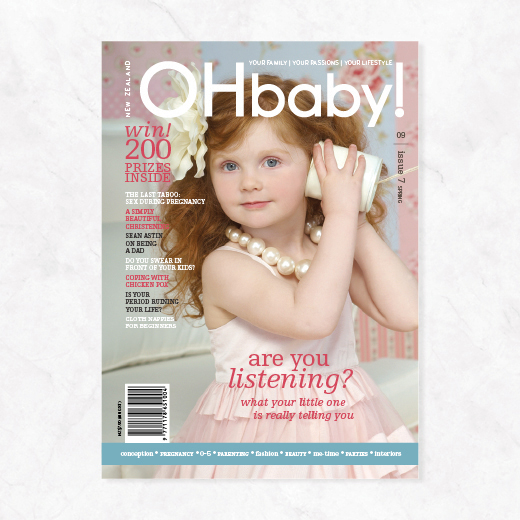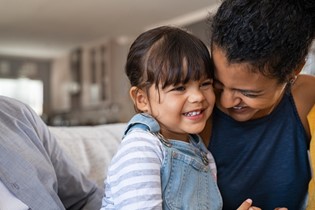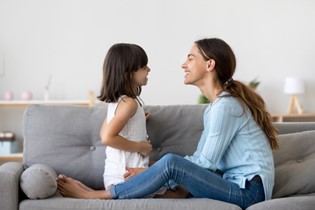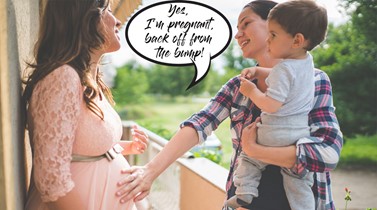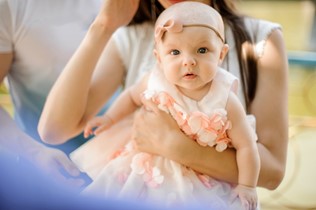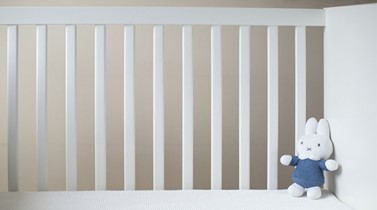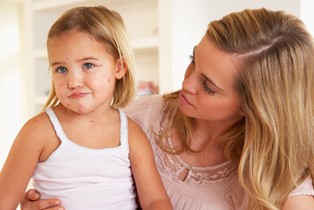Are you going to have a second child? Or happy with one?
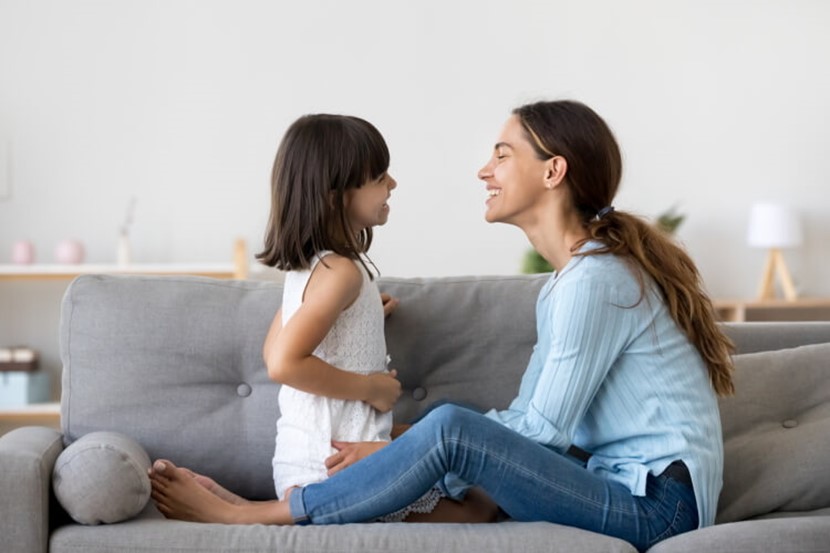
If you're a parent of one child, you may be feeling the pressure to start working on Baby Number Two. But what if you want to stop at one? Is having an only child really as sad and lonely as people like to tell us it is? Maree McNulty investigates.
As many new parents can attest, as soon as your first-born is in your arms, the questions and comments begin: "So, when is number two coming along?" "This little one will need a younger brother or sister!" "You'll want a pigeon pair." "More grandkids, please!"
But with statistics showing that one-child families could be on the rise in New Zealand, the definition of our typical family unit is changing - and with it the assumption that everyone plans to have more than one child, and those who don't, can't.
In a 2005 discussion paper by the Waikato University Population Studies Centre, researchers observed that New Zealand's total fertility rate (TFR) dropped from 2.09 children per woman in 1991 to 2.01 in 2004 - including a major drop in 2001 to 1.7 children per woman.
While the researchers say that future fertility is hard to predict, New Zealand's general fertility is higher than many other developed countries (Australia's TFR in 2004 was around 1.7, for example), so a downward trend is quite plausible. Combine these statistics with anecdotal accounts of more parents opting to have one child, and the traditional two-child family assumption starts to seem positively old-fashioned.
There are many different ways in which one-child families are created; some are by choice, some are not. Medical conditions, the physical and emotional impacts of fertility treatment, financial position, culture, family pressure, relationship status and personal choice, or any combination of the above, can shape a one-child family. Statistically, the trend towards women delaying having children is also impacting on how many children they have.
For Aucklander Justene Chang*, the decision to stop having children after her son Simon* was born was a medical one. Justene had a difficult pregnancy, spending the four months before Simon was born on complete bed-rest. While her son arrived healthy and she was fine, the prospect of another four months, or longer, lying flat on her back is not something Justene could endure again - especially with Simon to care for now. "In the beginning I felt guilty about not giving my son a sibling," says Justene. "But once I had worked through my guilt, I felt incredibly free."
Only-child expert and mum to seven-year-old Ronan, Jill Donovan, gives seminars on parenting only children, as a qualified mum of an only child herself with a background in management. In her seminar, Jill says that parents of only children need to remember that their family size is just fine, regardless of what anyone else thinks or any self-imposed guilt they might feel.
"A sibling is not necessarily a guaranteed recipe for happiness. What matters most is that parents of only children accept their family equation as a blessing, and parent from a positive perspective," she says. "If we are confident, competent, and proud of our one-child family, it will show in everything we do - and this is what our child needs to hear, see and experience."
But the guilt and uncertainty surrounding one-child families is not just self-imposed. There are long-standing stereotypes of only children as spoiled, pampered little brats, and their parents can encounter a range of reactions from pity to confusion to being considered selfish for not wanting more children.
Kim Mackenzie had her son Quade when she was 36, and she and her husband made the decision not to have any more children based on lifestyle factors.
"Quade is very independent and can be quite challenging. We wanted to be 110% dedicated to him," said Kim. "We now have a great balance between parenting Quade, continuing our careers, our own relationship and having a social life. A second child would throw that balance out." She said that while she has never felt guilty about having an only child, she has often come across the perception from other people that "you have to have two kids" - "Which is a shame, because the only children I know are all very lovely, contented, well-loved and well-rounded kids.
"I don't actually think that stereotype exists - or at least, if it does, it's not solely the domain of the only child."
Jill says the basics of parenting an only child are the same as parenting multiple children "It is irrelevant whether you have one or five children, you need to have a plan." However, she says there are some specific challenges and joys that are unique to parenting an only.
Only challenges
Parents of only children are constantly tempted to overdo everything and micromanage their child's life. Because they don't have to spread their time or attention to other children, it is easy to overindulge, overcompensate and overprotect their only child. Jill says that although this approach is natural and done with the best of intentions, it can cause problems later on as the child matures.
Kim says she is careful about how much attention she gives to Quade. "I am aware that I shouldn't think for him, which could be easy to do because I know him so well and have the time to give him that attention," she says. "Instead I let him problem-solve and make decisions himself. I was raised where I had to learn to stand on my own two feet and learn from my mistakes, to be independent and make my own decisions. I plan to parent Quade with those same values."
From purchasing too many toys to spending every moment doting on their child, to solving every problem for them, parents of an only can unwittingly train their child to believe they are the centre of the universe. Problems arise when they start pre-school or school and realise that others are not in fact there to serve them, and in reality they are no different to any other child.
Doreen Wang, mum to six-year-old Joshua, says she is careful to set realistic expectations for her son. She recalls being in the kitchen making dinner while Joshua was in his bedroom, calling out for her to help him with something. Because she couldn't hear him, she didn't respond immediately and this made Josh angry. "I realised then that I had been too quick to fix things or help Josh every time he asked, instead of letting him figure out solutions himself, so I had to take a step back," said Doreen.
For all the parenting challenges that come with having an only child, most research shows that there is little or no advantage in having siblings when it comes to social skills.
Toni Falbo, a professor of educational psychology and sociology from the University of Texas, published a study in the American Journal of Applied Social Psychology in 2006 on the interpersonal behaviour of only children. Her results indicate that only children are more likely to have a co-operative response and deviate more from group decisions than "non-onlies". While the only children reported having fewer friends and joining fewer clubs than their counterparts with siblings, they had comparable numbers of close friends and took a comparable number of leadership positions in the clubs they joined.
Only joys
Ask Jill about the joys of parenting an only child and be prepared to sit for a while. "The joys are great!" she enthuses. "We can indulge in really playing and having fun parenting without the need to share our attention with other children."
She says only children are much like first-borns in that they want to please their parents, so they can be very easy to parent and work quite effectively within the family. "Only children are also usually very 'adult' acting, well-behaved and overachievers. They can prefer to spend time with adults and parents, so it is easy to take them with you to the museum, theatre, movie or out for dinner."
She recounts a particularly good example with her son Ronan. "We were having a dinner party at our house and it was time for Ronan (then four) to go to bed, but he wanted to stay up with the adults. When I tried to explain to him that it was his bed time, he looked at me quite seriously and said, 'But mum, I'm just a small adult' - his reality was that of a small adult, not a child.
"We have to remember, as adults, to give our onlies time to enjoy having a childhood too. We need to have realistic expectations for our little ones and if we take them on an adult outing, make sure we build in time for some age-appropriate activity."
All the parents of only children spoken to for this article agreed that one of the best things about having an only child is being able to give them all of their energy, time and love. Many of the parents described themselves as having a type-A personality, wanting to approach parenting with all their energy. As Kim Mackenzie says, "With one child, you don't miss any of their special moments. You can parent to the max."
Maree Mcnulty is a freelance writer who fits writing in around her real job as full-time mum to two mischevious girls.

AS FEATURED IN ISSUE 7 OF OHbaby! MAGAZINE. CHECK OUT OTHER ARTICLES IN THIS ISSUE BELOW
